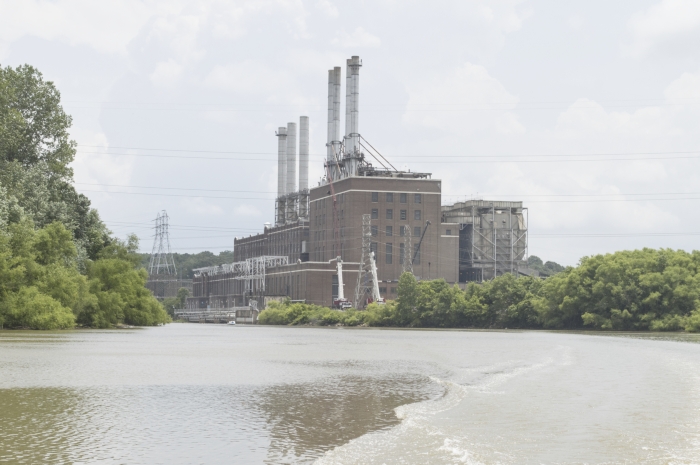Editorial: Stalling on coal ash
Published 12:07 am Thursday, May 19, 2016

- Duke Energy's Buck Station in Rowan County. Josh Bergeron / Salisbury Post -
When it comes to deciding what Duke Energy must do with coal ash, the state’s Department of Environmental Quality is clearly stalling for time — time that could help the nation’s largest electric utility save billions of dollars.
Neighbors of the reservoirs, including hundreds near Rowan County’s Buck Steam Plant, have waited months for DEQ to announce how neighboring coal ash ponds would be rated. They are concerned about the toxins that may be seeping into their wells. If the ponds were low risk, Duke might simply cap the coal ash ponds in place. If high risk, the coal ash would have to be removed from the site.
Wednesday DEQ played it down the middle, classifying 25 coal ash basins as intermediate risk, which requires excavation by 2024, but not necessarily removal from the site; lined landfills might be built on the property. DEQ further played it safe by saying the agency would ask legislators to let the agency revisit the designations in 18 months. That would give Duke time to fix pipes and dams and do other work around the reservoirs that could change their designation to low risk and cost the utility much less to remediate. Water lines to the affected homes are also a possibility.
The proposed extension sounds like a practical step, but in this saga it’s hard to know if you are getting the whole story. Besides, the real question is what’s flowing out of these pits into surrounding groundwater and how is it affecting the health of people who live nearby? Two years after this issue erupted, definitive answers are hard to find.
Duke Energy has estimated that closing its North Carolina coal ash ponds could cost $4 billion — plus or minus millions, depending on the ultimate designation. A high-risk rating would warrant the most expensive solution, requiring Duke to remove coal ash from the site. Figuring out where to put the excavated material is an emerging national dilemma. Utilities have in some cases crossed state lines to dump material into landfills, but once people around those landfills figured out what was going on, the practice usually came to a halt. In South Carolina, power companies SCE&G and Santee Cooper have said they will dig up coal ash and either put it in their own landfills or recycle it.
No one seems satisfied by Wednesday’s announcement. Most disappointed are residents looking for clarity and assurance that the coal ash will be removed and their well water will be safe. Instead, they are likely to see at least 18 more months of uncertainty.


